
OpenAI announces an artificial intelligence recruitment platform to compete with LinkedIn
OpenAI says it is developing an artificial intelligence-based recruitment platform that will connect companies with employees, a service that would put the company in direct competition with LinkedIn. The product is called OpenAI Jobs Platform, and the launch is expected by mid-2026, a company spokesperson told TechCrunch.
Fidji Simo, CEO of OpenAI's Applications division, announced the new project on Thursday in a blog post, stating that the company will "use AI to help find the best matches between what companies need and what workers can offer." Simo also mentioned that the service will have a dedicated section for small businesses and local administrations to access the best AI specialists.
OpenAI wants to expand into more new markets beyond its main product, ChatGPT. At a recent meeting with journalists, Sam Altman, CEO of OpenAI, said that Simo will coordinate several applications beyond the chatbot, including OpenAI Jobs Platform and possibly other projects the company is working on, such as a browser and a social media application.
One in three Europeans uses TikTok, according to the Chinese giant
TikTok has over 200 million active users monthly in Europe, which is about one in three citizens of the continent, the short video platform announced on Friday. This is the latest sign of rapid growth among teenagers.
The number is up from 175 million last year, across 32 European countries. TikTok, owned by the Chinese company ByteDance, has over 1 billion active users globally, a spokesperson stated.
Google details usage limits for Gemini
Until recently, it was unclear what usage limits existed for Gemini at the different subscription levels. Now, Google has updated the Help Center article titled "Gemini Application Limits and Upgrades for Google AI Subscribers."
Vague descriptions such as "limited access" or unclear mentions that "sometimes we will need to limit the number of requests and conversations you can have in a certain period" have disappeared. It is now clear: a free account receives up to 5 requests per day with Gemini 2.5 Pro, the AI Pro plan offers 100, and AI Ultra 500.
Free accounts are also limited to 5 Deep Research reports and 100 generated images per day. If you need more than 100 images daily: A: For what? B: Upgrading to a Pro or Ultra account gives you 1,000 images.
Greece and OpenAI sign an agreement to support innovation in schools and small businesses
Greece and OpenAI signed a memorandum on Friday to expand access to AI tools in secondary education and to stimulate innovation among small businesses, the American company announced.
The agreement makes Greece one of the first countries to implement ChatGPT Edu, a specialized version of ChatGPT for academic institutions.
According to the memorandum, Greek startups in fields such as health, climate change, education, and the public sector will have access to OpenAI technology and credits to support their projects.
MrBeast is set to launch a phone company
MrBeast, the famous 27-year-old YouTuber known for his challenges and spectacular contests, is preparing to enter new territory: he is set to launch his own phone company.
According to Business Insider, which consulted a document intended for investors, MrBeast plans to launch a mobile phone service next year. The publication also reports that he and his team at Beast Industries are considering projects in fintech and mobile gaming.
German startup DeepL launches an AI "agent" for companies
DeepL, the German company known for its AI-based translations, announced on Wednesday that it is expanding its services to dedicated AI agents for businesses.
An AI "agent" is a tool that can perform tasks in the background, in response to user commands.
DeepL Agent is designed to complete "time-consuming repetitive tasks across a wide range of functions," the company stated. It can respond to commands in natural language and can be used by teams from human resources to marketing.
OpenAI will direct sensitive conversations to GPT-5 and will introduce parental controls
OpenAI announced on Tuesday that it plans to send sensitive conversations to reasoning models like GPT-5 and to introduce parental controls next month — part of a response to recent incidents where ChatGPT failed to detect emotional crisis situations.
The measures come after the suicide of teenager Adam Raine, who had discussed self-harm and suicide methods with ChatGPT. His parents have filed a lawsuit against OpenAI.
In a blog post last week, OpenAI acknowledged deficiencies in its safety systems, including failures in maintaining protective barriers in long conversations. Experts say these issues stem from the fundamental design of the models: the tendency to validate user claims and word prediction algorithms, which cause chatbots to follow the conversation instead of redirecting it in dangerous cases.
Google Photos improves the image-to-video transformation feature with Veo 3
The latest video generation model from Google, Veo 3, is coming to Google Photos. The new model, available in the mobile app under the Create tab, will allow users in the US to transform photos into videos.
Google Photos already offered a video creation feature through the "Photo to video" option, but the company says that the integration of Veo 3 brings better quality clips. The launch also shows how Google brings the latest AI technologies directly to consumers through its products; for example, Google Photos had over 1.5 billion active users monthly in May 2025.
Apple faces a lawsuit for using pirated books to train AI
Two authors have sued Apple, accusing the company of violating their copyright by using their books to train its artificial intelligence models without their consent. The plaintiffs, Grady Hendrix and Jennifer Roberson, claim that Apple used a dataset made up of pirated books that includes their works.
The complaint states that Applebot, the company's data collection system, can access "phantom libraries" made up of copyrighted books but distributed illegally. The lawsuit is now seeking to obtain class action status, considering the large number of affected authors.
The two writers, Hendrix and Roberson, have published several successful books and say that Apple, one of the largest companies in the world, has not attempted to pay them for "contributions to a project with huge profit potential." In documents, they accuse the company of "copying protected works" to train AI models whose results compete directly with the same books and reduce their market value.
Adobe brings the Premiere video editing app to iPhone
Adobe plans to launch its video editing software Premiere on iPhone. The company has listed the app in the App Store with a pre-order option and an estimated release date of September 30.
Adobe stated that Premiere on iPhone will allow editing and exporting video clips without a watermark. The app will include features similar to the desktop version: trimming, multiple layers, and fine frame adjustments. There will also be automatic subtitles with styling, support for video, audio, and text layers, as well as export in 4K HDR.
Google's NotebookLM now allows customization of AI podcast tones
Google's AI assistant for notes and research, NotebookLM, offers users the ability to customize the tone of AI-generated podcasts (Audio Overviews), which summarize and discuss documents uploaded to the platform, such as academic articles or legal documents.
When generating an Audio Overview, users can choose for the podcast to be in the form of "Deep Dive" (detailed analysis), "Brief" (short summary), "Critique" (critique), or "Debate" (debate).
Roblox announces a short video feed for gaming clips and new AI tools for creators
The online gaming platform Roblox is launching a short video feed, TikTok-style, to share gaming moments, the company announced on Friday at the Roblox Developers Conference. Additionally, the company is introducing higher earnings for creators, new AI development tools, and other performance improvements.
The new video experience, called Roblox Moments, is available in beta for users over 13 years old. They can record clips of up to 30 seconds from their gaming sessions, then edit and share them in a scrollable feed, adding music and descriptions.
OpenAI reorganizes the team that defines ChatGPT's "personality"
OpenAI is reorganizing its Model Behavior team, a small but influential group of researchers who shape how AI interacts with humans, TechCrunch reports.
In an internal memo from August, Mark Chen, Chief Research Officer at OpenAI, announced that the team of 14 researchers will be integrated into the Post Training group, responsible for improving models after the initial pre-training phase.
From now on, the Model Behavior team will report directly to Max Schwarzer, the leader of the Post Training division. OpenAI has confirmed the changes.
Chinese battery manufacturer CATL will start production in Hungary in early 2026
The new factory of the Chinese company CATL in Debrecen, Hungary, is set to begin production at the beginning of next year, the CEO for Europe announced on Sunday.
CATL has invested 7.3 billion euros (8.55 billion dollars) in the factory to expand battery production for European automakers such as BMW, Stellantis, and Volkswagen.
EU fines Google $3.5 billion for abuse in online advertising
The European Commission announced this week that it is fining Google 2.95 billion euros (almost 3.5 billion dollars).
The Commission concluded that Google violated EU antitrust rules by favoring its own advertising services. Specifically, the company "abused its dominant position" by favoring its AdX platform in the ad server for publishers and in ad buying tools.
Google has 60 days to "stop self-favoring practices" and to "implement measures to reduce conflicts of interest in the adtech chain."
Switzerland launches its own AI model trained on public data
Switzerland launched an open-source AI model called Apertus on Monday, as an alternative to proprietary models like ChatGPT or Claude, SWI reports, cited by Engadget. The source code, training data, model weights, and development process are available on the HuggingFace platform.
Apertus — which means "open" in Latin — was designed to "establish a new standard of global trust and relevance for open-source models." The model has been trained on over 1,800 languages and comes in two versions: 8 billion and 70 billion parameters. According to SWI, it is comparable to the Llama 3 model from 2024, developed by Meta.
Developers say that Apertus complies with European copyright legislation and the voluntary code of good practices in AI, although some American companies have signed these rules with reservations, arguing that they stifle innovation.
Apple may launch an AI search feature for Siri, with help from Google
Apple is working on an AI-based search feature for Siri — but it may need Google's support, Bloomberg reports. Google is said to be favored to help Apple modernize its voice assistant, possibly through a customized Gemini model hosted on Apple's servers.
The new feature, internally called World Knowledge Answers, is expected to allow users to search for information and receive AI-generated summaries based on the web. The interface would integrate text, images, videos, and points of interest, competing with AI search features offered by OpenAI or Perplexity.
The first portable station based on sodium-ion batteries resistant to extreme cold
At IFA 2025, the company Bluetti presented the first portable energy station based on a sodium-ion battery, as well as an additional unit designed to be mounted next to a refrigerator to keep it running in case of a power outage.
The model Pioneer Na (Na = sodium) has AC and USB outlets and offers up to 1,500 W of continuous power, enough for most household or camping appliances. It also accepts up to 500 W of solar input. The main attraction is the 900 Wh sodium-ion battery — a "world premiere," according to Bluetti.
However, caution is advised, as the company announced a larger, wheeled model based on sodium-ion in 2021, but it is unclear if it ever reached the market.
Microsoft says Azure was affected after submarine cables were cut in the Red Sea
Microsoft announced on Saturday that users of its cloud platform Azure may experience increased latency after several submarine cables were cut in the Red Sea, Bloomberg reports.
In an update, the company stated that traffic through the Middle East or to Asia and Europe has been affected. It did not specify who cut the cables or why.
"Repairing submarine cables can take time, so we will continuously monitor the situation, redistribute, and optimize traffic to reduce the impact on customers," Microsoft stated.
Anthropic pays at least $1.5 billion in copyright lawsuit
Anthropic has agreed to pay at least $1.5 billion to settle a lawsuit filed by a group of authors who accused the company of copyright infringement. The estimate is about $3,000 per work.
In a document filed on Friday, the plaintiffs emphasized that the terms of the agreement represent "essential victories" and that a court case would have involved a "serious risk."
OpenAI will launch its first AI chip in 2026, in partnership with Broadcom
OpenAI is set to produce its first artificial intelligence chip next year, in collaboration with American giant Broadcom, the Financial Times reports, citing sources close to the project.
The company intends to use the chip only internally, without making it available to other clients, according to one source.
Study: 30% of iPhone users consider switching to competitors' foldable phones
A survey published on Monday by the SellCell platform, which compares trade-in offers, shows that 30% of iPhone users are considering switching to foldable phones from competitors if Apple waits until 2026 to launch its own model.
Of these, 20.1% would consider a Samsung foldable and 10.2% a Google one.
The survey, conducted on a sample of over 2,000 American iPhone users, also shows that 3.3% are directly waiting for a foldable from Apple for their next upgrade.
Scientists create solar technology that could replace batteries in everyday devices
Imagine a world where the TV remote, keyboard, or alarm clock no longer need batteries. That world could be closer than you think.
Researchers at University College London (UCL) have developed revolutionary solar cells that capture energy not from direct sunlight but from artificial light indoors. Even more interesting, these cells can be produced through a process similar to newspaper printing, making them cheap and scalable.
At the heart of the innovation is perovskite, a family of minerals already tested for traditional solar panels, due to their high performance and low cost. Standard perovskite-based cells can achieve nearly 30% efficiency, surpassing silicon-based ones (24-25%). However, their lifespan is only 30 months, compared to 30 years for silicon.
Google discreetly resumes tracking on iPhone. Here’s how to stop it
No, your iPhone is not recording your conversations. But it is being tracked in ways that most people are unaware of. A technology called digital fingerprinting allows companies to track you online without your knowledge and without your consent.
Unlike cookies, which you can delete, a digital fingerprint is permanent. It is built from details such as your IP address, phone model, operating system, time zone, and even device settings. Individually, they may seem insignificant. Together, they form a unique "signature" that identifies you wherever you go online.
Even if you use Safari instead of Chrome for privacy, Google can still collect this data whenever you interact with its services. Combined with information from smart TVs, consoles, or other connected devices, they create a detailed profile of your digital life.
Are incentives the cause of AI hallucinations?
A new study from OpenAI analyzes why large language models, such as GPT-5, continue to generate hallucinations and whether changing evaluation methods could reduce the phenomenon.
In a blog post, OpenAI defines hallucinations as "false but plausible statements generated by language models." The company acknowledges that, although progress has been made, they "remain a fundamental challenge for all large language models" and may never completely disappear.
Google Gemini rated as "high risk" for children and teenagers
The nonprofit organization Common Sense Media, which analyzes media safety and technologies for children, published a risk assessment for Google Gemini on Friday.
The report emphasizes that, although Gemini clarifies that it is a computer and not a friend — which reduces the risk of emotional dependency — the product has serious gaps in protecting minors.

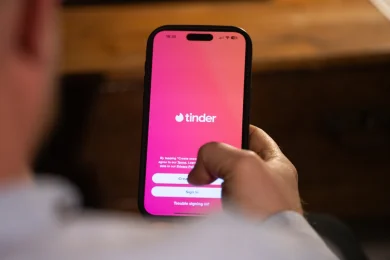
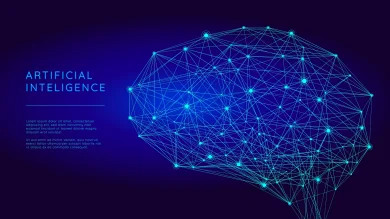
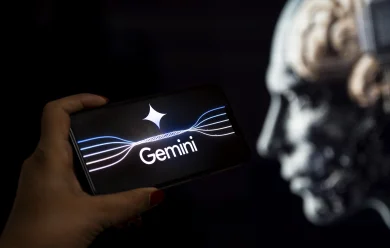
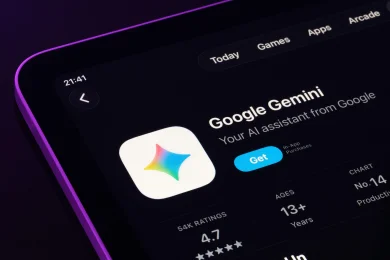
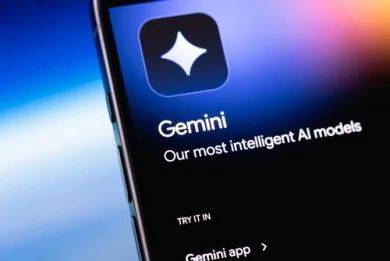
.webp)









